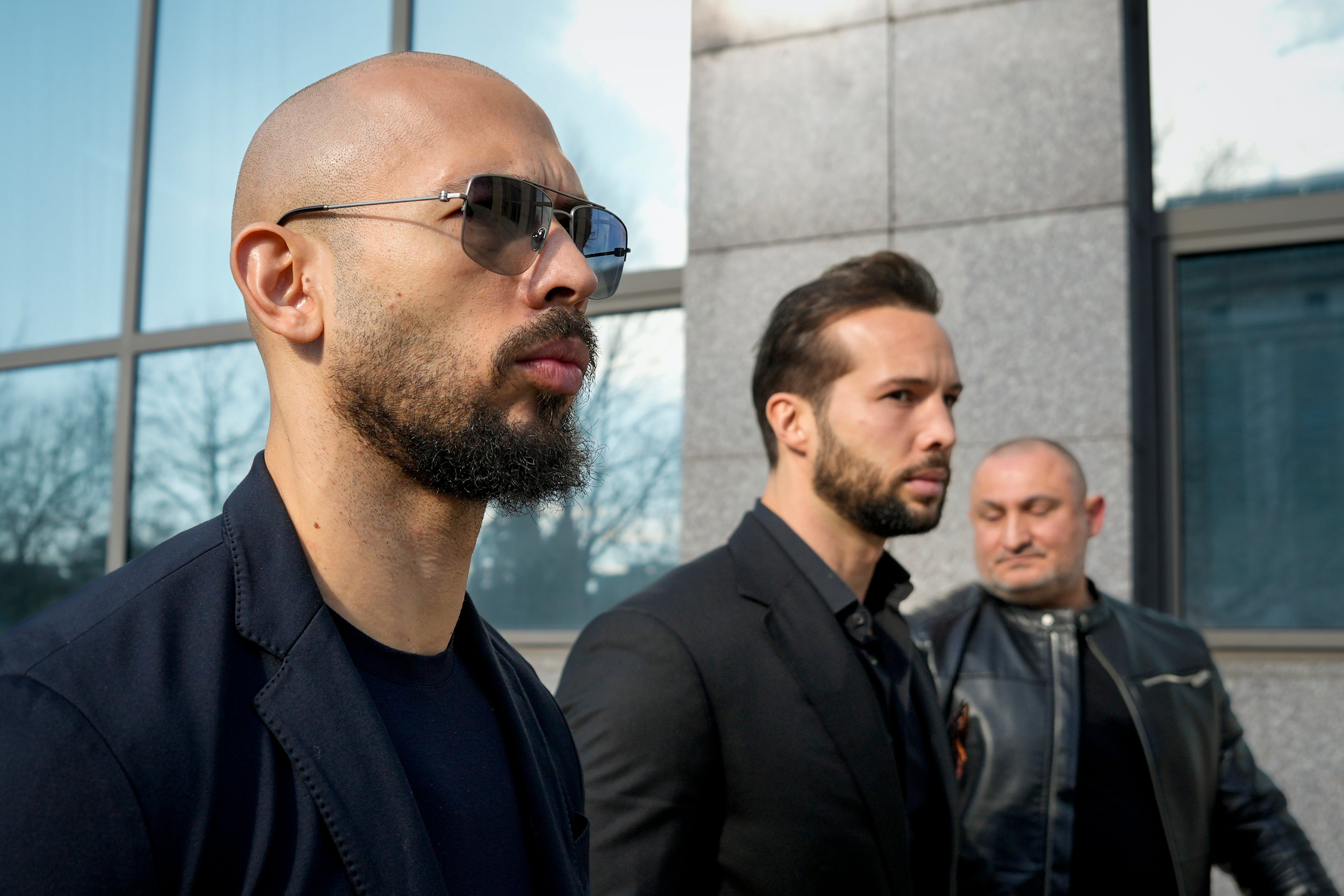Can ‘misogyny mentors’ help steer boys away from Andrew Tate?
Schools could be given powers to train older boys to prevent younger pupils from falling under the spell of sexist social media influencers, writes James Moore. What a brilliant idea...


How do you solve a problem like Andrew Tate? According to the Labour Party, you bring in “misogyny mentors” – and here’s the thing: it might just work.
The scheme, tabled by shadow education secretary Bridget Phillipson, would see schools training up peer-group mentors to counter the negative impact of people like Tate. By introducing role models to classrooms who can show pupils how to question the material they see on social media, they hope to provide a “powerful counterbalance” to self-professed “misogynist” influencers.
Rishi Sunak, in a bid to combat some of the problems with smartphone use in schools, has already pledged to ban handsets and to empower headteachers to dramatically reduce mobile use in the classroom (though he stopped short of backing calls by the mother of murdered teenager Brianna Ghey for social media apps to be banned on smartphones for under-16s).
But the trouble is that the issue persists long past the final bell at 3pm. Ban phones from school premises if you like – Tate’s insidious influence will still be found in bedrooms and in group chats; in playgrounds and on buses. Kids are adept at finding ways of consuming social media, these things are an established part of their world. Many get their homework assignments through smartphones.
Enter Labour, with a plan to train up older boys to counter the poison Tate and his pals are pumping out. And it’s a good idea – just ask yourself: who are the best people to divert young men away from the clutches of a “gang”? (Tate and his “Hustlers University” cronies could certainly be construed as a gang, of sorts). The answer, obviously, is other young men who recognise the ugliness he represents – and the risks of following his message. Plus, who better to communicate in a way kids can relate to?
I know from experience how hard it can be to get disaffected young men to listen – I was one. I wasn’t ever much interested in hearing what my parents or teachers had to say; I was more enthused by sitting in fields, listening to music, going hunt sabbing, drinking under-age, shaking my fist at the world and grousing about the place I lived. It was only when I realised that I wanted to get the hell out of said town that I started applying myself.
Might a positive influence from someone closer to my age have helped? Possibly. It would have depended on how they made their pitch. It would have been better if their background was as turbulent as mine.
So, yes, I applaud any sideways thinking that focuses on actually empathising and identifying with kids, rather than lecturing them. We’ve seen similar tactics whereby former addicts go into schools to talk about the dangers of addiction, and people with mental health issues do the same – discussing how important it is to seek help and reduce stigma.
Relatability is key. But there’s one other important addition I believe schools should also take into account – and that’s asking why Tate has become so popular in the first place.
As one of my colleagues points out: “At its core, it is fairly simple: it’s because he is speaking directly to them, and we aren’t.”
It seems to me that nobody is listening or talking to kids about the stuff they care about. And a top-down approach doesn’t work. There’s a reason why teens have a problem with authority. Preaching at them isn’t going to help – or change anything. But “misogyny mentors” might.
I still have many questions about the implementation of such a scheme – not least regarding the training of these youth mentors (who gets picked to do it – volunteers only? – and how do they get trained up?). I’m also fairly sure the scheme will face scorn and derision, because it comes from the opposition and will probably be accused of being too ideological or too “woke”.
But it’s a start. It’s one of the freshest and most original ideas I’ve heard from an incoming government for quite some time.
And we need it now, more than ever: for Tate (who is currently awaiting trial on rape and human trafficking charges in Romania, alongside his brother) is merely the tip of a very large iceberg.
Addressing that reality (and noting that bans on YouTube and other social media platforms aren’t punitive enough by themselves to stop his reach) requires something too often absent from the debate surrounding him: nuance, understanding and a recognition of what it is that makes the iceberg so appealing to a significant minority of young men.
Join our commenting forum
Join thought-provoking conversations, follow other Independent readers and see their replies
Comments
Bookmark popover
Removed from bookmarks